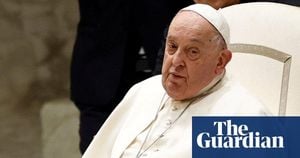Doha, Qatar: The Customs Department at Hamad Port and the southern ports successfully thwarted an attempt to smuggle banned tobacco, marking another victory for Qatar's border security efforts. This operation unfolded after customs inspectors grew suspicious of a tanker shipment, leading to the discovery of approximately 15 tonnes of banned tobacco cleverly concealed within hidden compartments.
According to The Peninsula Qatar, specialized devices played a pivotal role during the inspection, allowing officials to detect the illicit goods and reinforcing Qatar's commitment to maintaining strict customs regulations amid growing challenges of smuggling.
Meanwhile, Qatar has made significant strides on the global stage, securing the 22nd position globally and third among Arab nations in the Global Soft Power Index 2025, as indicated by Brand Finance. This index assesses 193 countries based on insights from over 173,000 business leaders, policymakers, and members of civil society. With its Nation Brand Valuation remaining unchanged at $270 billion, Qatar’s soft power reflects its increasing international influence.
The country garnered a Global Soft Power Score of 54.5 out of 100. The United States topped the list with a score of 79.5, followed by China, the United Kingdom, Japan, and Germany rounding out the top five. Interestingly, El Salvador emerged as the fastest-rising nation, climbing 35 spots to land at the 82nd position. Countries embroiled in military conflict, on the other hand, continue to see declines in their soft power rankings.
Soft power, as defined by Brand Finance, refers to a nation's ability to sway preferences and behaviors through attraction and persuasion rather than coercion, making it increasingly relevant as countries navigate complex global relations.
Further highlighting its active diplomatic endeavours, Qatar Chamber recently hosted an Algerian parliamentary delegation, led by Yahi Ali, chairman of the Algeria-Qatar Parliamentary Friendship Group. The meeting aimed to bolster economic and trade relations between the two nations. Board members from Qatar Chamber, including Mohamed bin Ahmed al-Obaidli and Dr Mohamed bin Jawhar al-Mohamed, were present to discuss potential joint investments.
During the meeting, Al-Obaidli underlined the strong relations between Qatar and Algeria, especially within the commercial sector, noting existing successful partnerships and the willingness of Qatari businessmen to engage more actively with their Algerian counterparts.
Dr. Al-Mohamed emphasized Qatar’s position as a regional investment hub, citing the numerous incentives and facilities available for foreign investors. He encouraged Algerian businessmen to view Qatar as a strategic opportunity to expand their investments. Ali reciprocated by stating Qatar's attractiveness as an investment destination for Algerians, reflecting Algeria's recent economic reforms aimed at drawing foreign capital.
These discussions signify more than just political camaraderie; they represent Qatar’s broader strategy to strengthen its economic foundations and ties with neighboring Arab nations. With Algeria’s recent updates to investment laws intended to improve its business environment, both countries are poised for fruitful collaborations moving forward.
Qatar continues to navigate its national priorities alongside its international aspirations, striving to be a significant player on the global stage. Efforts such as foiling smuggling attempts, achieving high rankings for global influence, and fostering economic partnerships highlight the nation’s dedication to both domestic stability and international engagement.



